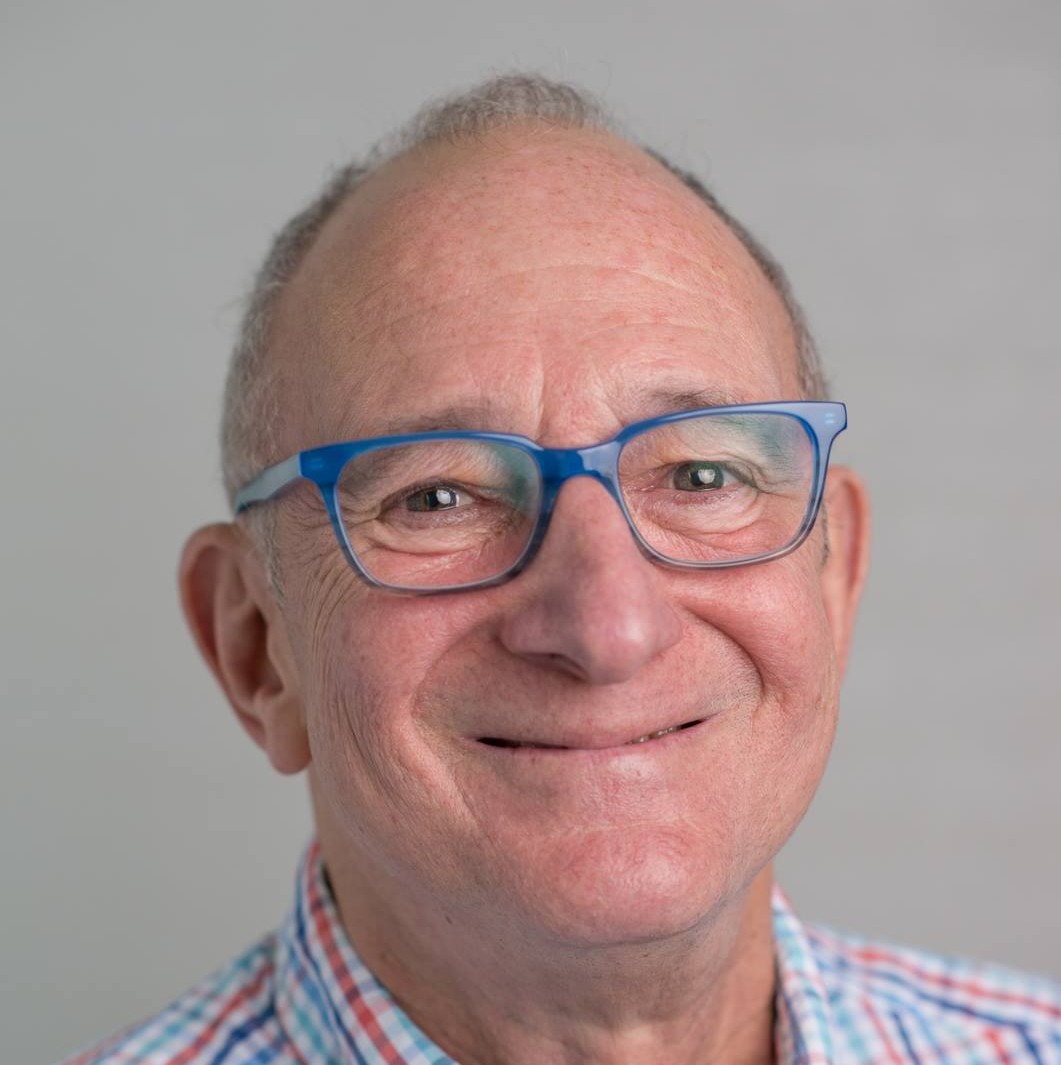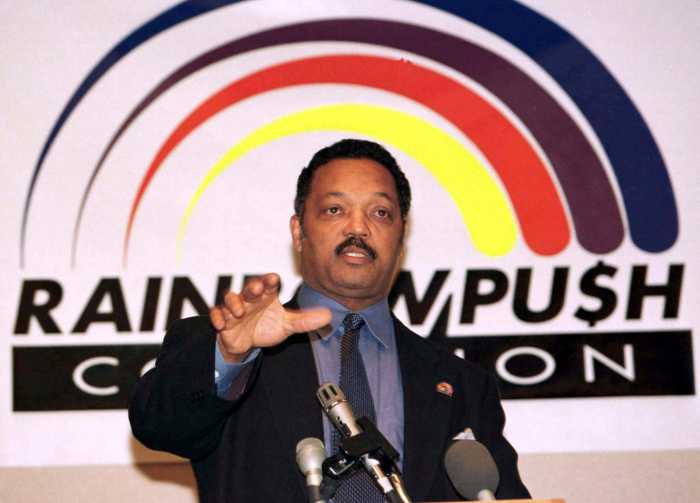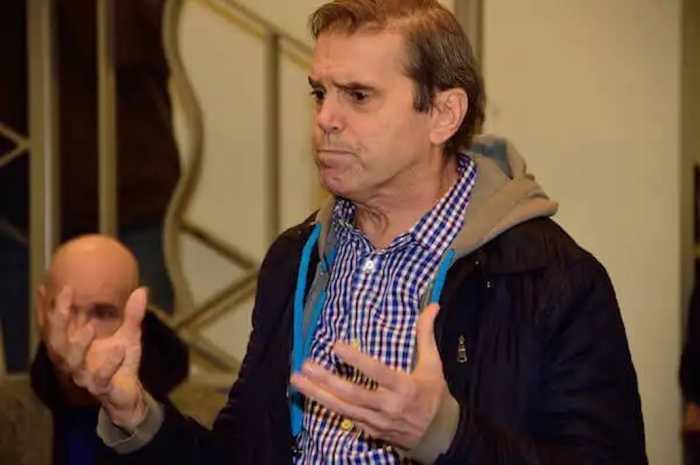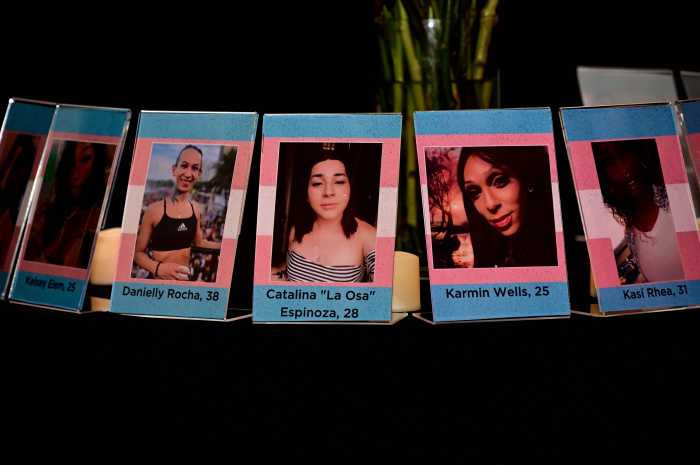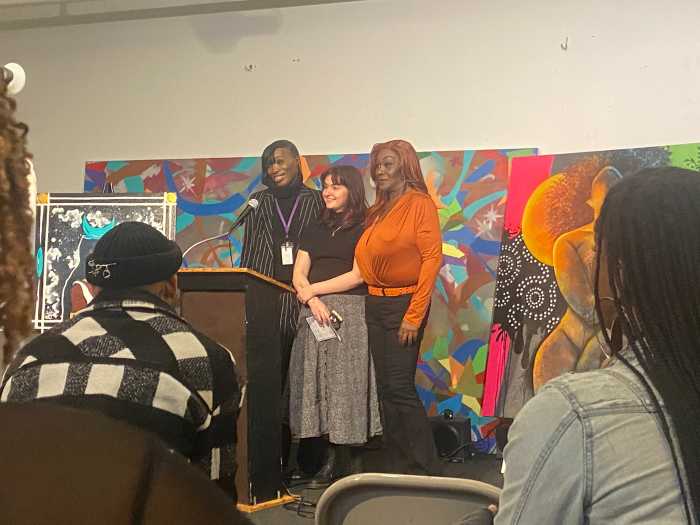When Michael Seltzer first got involved in progressive and then gay activism in the 1970s, it was mostly funded through passing the hat at meetings and through low dollar fundraisers. More than any other individual, Seltzer turned that around over the course of decades of work, from serving on boards of major gay organizations from 1980 onwards to creating and running organizations that exponentially increased philanthropy to gay and AIDS causes.
According to his close friend Richard Burns, Seltzer died suddenly of a heart attack on July 31 while “in the Thimble Islands [in the Long Island Sound in Connecticut] with his husband Ralph Tachuk and a group of their best friends.” He was 78 years old and was partnered with Tachuk, a prominent editor and writer, for 43 of them.
Burns said he met Seltzer at Lambda Legal in 1980 and that they were friends for 45 years. He said Seltzer’s “bravery and leadership leave a remarkable legacy. He stepped up again and again when called,” citing his work at Lambda Legal, where he was co-chair of the board with Nath Rockhill, and at New York’s LGBT Center, where he was co-chair of the board with Janet Weinberg and where Burns was the longtime executive director. Burns praised the countless ways he helped and mentored rising activists and leaders: “His kindness and generosity informed everything he did.”
Funders for LGBTQ Issues, co-founded by Seltzer 43 years ago with Katherine Acey, said in a statement that they “honor his legacy by working towards our vision of a world where all queer and trans people are liberated, loved, valued, respected, and thriving.”
Acey told Gay City that Seltzer “led brilliantly and modestly for our communities,” and that for her and so many others, he was a “guiding light, compassionate, curious, optimistic, loyal, and irresistibly lovable.”
Lambda Legal CEO Kevin Jennings said in a release, “In a time when most LGBTQ+ philanthropy professionals were in the closet, Michael was out and proud. In the ’80s and ’90s, mainstream philanthropy simply did not prioritize LGBTQ+ people or those living with HIV, and Michael wouldn’t accept that. He spent decades agitating to change priorities in the sector and hundreds of millions of dollars flowed into organizations serving our communities as a result.”
Seltzer co-founded Funders Concerned About AIDS (FCAA) with Joyce Bove in 1987 during the administration of Ronald Reagan, who criminally neglected the pandemic. GMHC was co-founded in 1982 by Larry Kramer to agitate for government funding and action. While GMHC grew as a service organization, it took the advocacy of ACT UP, also co-founded by Kramer, and Seltzer’s expertise and activism in philanthropy to get real money funding research and treatment.
FCAA posted that Seltzer’s “pursuit of a world without AIDS was personal. After witnessing a friend’s battle with AIDS, he felt a profound responsibility to act.”
Masen Davis, the group’s current executive director, said, “As our colleagues and loved ones became sick and died, our concern shifted into high gear and seeded collective action. It fell to those of us who had been spared AIDS’ deadly grasp to find ways to stem the pandemic’s devastation.”
In 1987 FCAA published “A Funders Guide to AIDS Grantmaking.” Seltzer continued as executive director until 1997 — just after the advent of effective treatments for HIV — and “helped seed the global philanthropic response to HIV.”
As major foundations stepped up on HIV/AIDS issues — including the Elton John AIDS Foundation, the Ford Foundation (where Seltzer was a program officer from 1995-98), and the MAC AIDS Fund — private philanthropy for HIV/AIDS initiatives grew from $18 million when FCAA began to almost $59 million in 1996. (The group now puts the figure at $722 million.) They note that Seltzer produced “influential resources for grant makers” and co-hosted in 1995 the first White House Conference on AIDS, held during the Clinton administration.
FCAA’s current president, Saida Agostini-Bostic, said, “Over the course of his life, Michael’s organizing was grounded in a keen understanding of the realities that Audre Lorde named so many years ago: There is no single-issue struggle.”
Seltzer also served as president of Philanthropy New York from 2003-06 and was a beloved professor at the Baruch College’s Marxe School of Public and International Affairs for 12 years.
“As a distinguished professor at Baruch College, Michael brought to The Trust a visionary idea: to create a program that would inspire and equip the next generation of nonprofit leaders in our region,” the New York Community Trust posted online. “He worked with Patricia Swann, The Trust’s expert on technical assistance and nonprofit residency, to create The New York Community Trust Nonprofit Leadership Fellows at Baruch College. More than a decade later, this fellowship continues to thrive and provide professionals with the skills they need to navigate a challenging world. The program has supported around 600 of dedicated leaders across New York City, Long Island, and Westchester.”
In addition, Seltzer chaired the master’s degree program in Non-Profit Management at the Milano School of the New School University.
Seltzer was the author in 1987 of “Securing Your Organization’s Future: A Complete Guide to Fundraising Strategies,” which he updated in 2002 and is often used as a textbook in the field.
Back in the early ‘70s, he was co-director with Linda Richardson of The People’s Fund (which became the Bread & Roses Community Fund) in Philadelphia, raising money for groups such as the Black Panthers that were considered “too radical” by traditional philanthropy. The fund’s motto was “Change: Not Charity.”
When SAGE was just getting on its feet and funded solely by individual contributions in the early 1980s, Seltzer helped the group for LGBTQ older people get its first grant. “In the early years, I counted each grant as an LGBT victory,” he said.
Seltzer was always thinking ahead. When in 2013 the US Supreme Court issued the Windsor decision striking down part of the anti-gay Defense of Marriage Act, he wrote in the Chronicle of Philanthropy that the historic victory also “marks a time for philanthropy to reflect on its power to further social justice: Non-profits, with the support of foundations, paved the way for this decision, but now donors have much more work to do to help assure full equality for all.”
The Fire Island Pines Property Owners Association paid tribute to Seltzer as “not only a beloved Pines resident [for 35 years]; he was a leader in the LGBTQ+ movement.”
Veteran AIDS activist Eric Sawyer posted of his friend, “Michael was a giving man who helped immensely with making connections to funders and helping secure funding both when we [were] starting Housing Works and also when we were raising funding for the New York City AIDS Memorial. He was extremely generous and generous with his time, advice, and assistance!”
A native New Yorker, Michael Seltzer was a 1964 graduate of the prestigious Bronx High School of Science and a 1968 grad of Syracuse University’s Maxwell School, where his degree was in international relations-African studies.
A memorial service will be held in the fall. Donations in Michael Seltzer’s name can be made to any of the organizations with which he was associated above or to the North Star Fund and Astraea Lesbian Foundation for Justice, which he and Ralph Tachuk supported.

